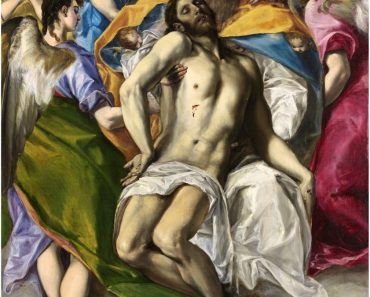The Greek inscription reads, “The god-loving Akeptous has offered the table to God Jesus Christ as a memorial.”
An 1,800-year-old inscription, described as the “greatest discovery since the Dead Sea Scrolls,” is captivating historians and believers alike. The Megiddo Mosaic, unearthed beneath an Israeli prison floor, is now on display at the Museum of the Bible in Washington, D.C., drawing global attention as the earliest physical proclamation of Jesus Christ’s divinity.
A window into early Christianity
Dating to 230, the mosaic once adorned a private chapel in what is considered the earliest known Christian house of prayer. Its Greek inscription reads, “The god-loving Akeptous has offered the table to God Jesus Christ as a memorial.”
This phrase is remarkable for its clear declaration of Jesus as God, predating the official recognition of Christianity as the Roman Empire’s state religion by nearly a century.
“This discovery rewrites our understanding of early Christian worship and the theological convictions of its followers,” states Alegre Savariego, director of the mosaic’s exhibition.
The mosaic’s location near a Roman military camp, coupled with the name of Gaianus, a Roman officer credited with commissioning the artwork, suggests surprising levels of coexistence between Romans and early Christians.
The legacy of Akeptous and early Christian women
The Times of India notes that another striking feature is the inclusion of Akeptous, a woman who donated the table mentioned in the inscription. Her contribution highlights the significant role of women in the nascent Church.
“This mosaic reminds us that early Christianity was a community effort, where both men and women played integral roles in the faith’s survival and growth,” says Carlos Campo, CEO of the Museum of the Bible.
Symbols of faith and hope
Covering 581 square feet, the mosaic is a masterpiece of early Christian art. Alongside the inscription are other traditional early Christian symbols. most prominently, the fish.
In Greek, this symbol is known as the Ichthys, the word that simply means “fish.” But the Greek letters — ΙΧΘΥΣ — can also be an acronym, as they are the initials of the words in the Greek phrase that translates “Jesus Christ, Son of God, Savior.” The presence of the fish symbol offers a glimpse into the lived faith of early Christians and their methods of covert expression during times of persecution.
A revolutionary discovery
Excavated over four years by the Israel Antiquities Authority, the Megiddo Mosaic bridges historical and theological gaps. Its exhibition in Washington has allowed countless visitors to connect with the roots of their faith.
“It is truly the greatest discovery since the Dead Sea Scrolls,” Campo affirms.
After its U.S. exhibit concludes in 2025, the mosaic will return to Israel, where it will be displayed at its original site. There, it will continue to inspire pilgrims, scholars, and all who seek to understand early Christian practices.
This extraordinary find enriches our historical understanding and reminds us of the enduring faith of early Christians, whose belief in Christ’s divinity laid the foundation for centuries of spiritual tradition.








